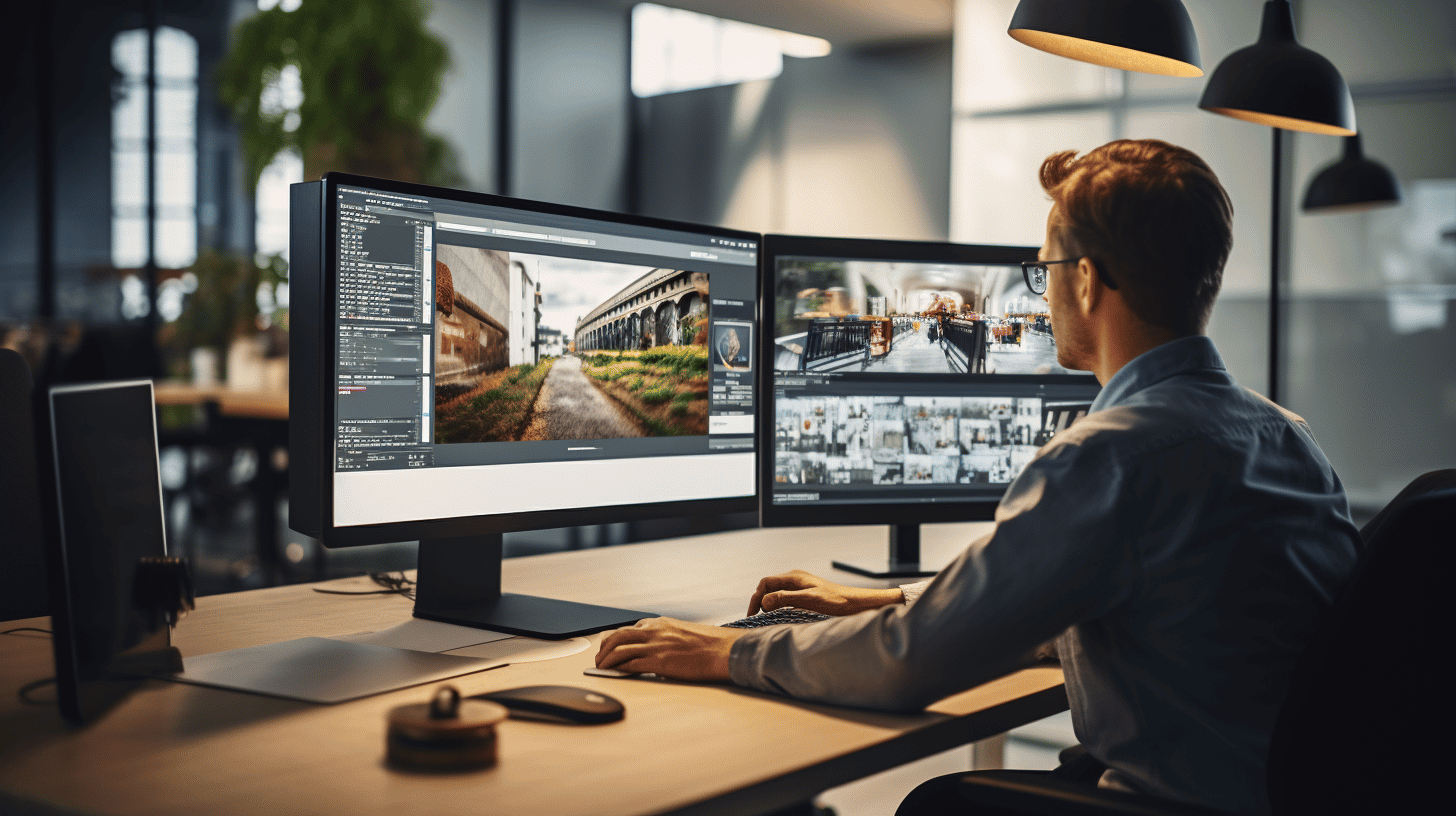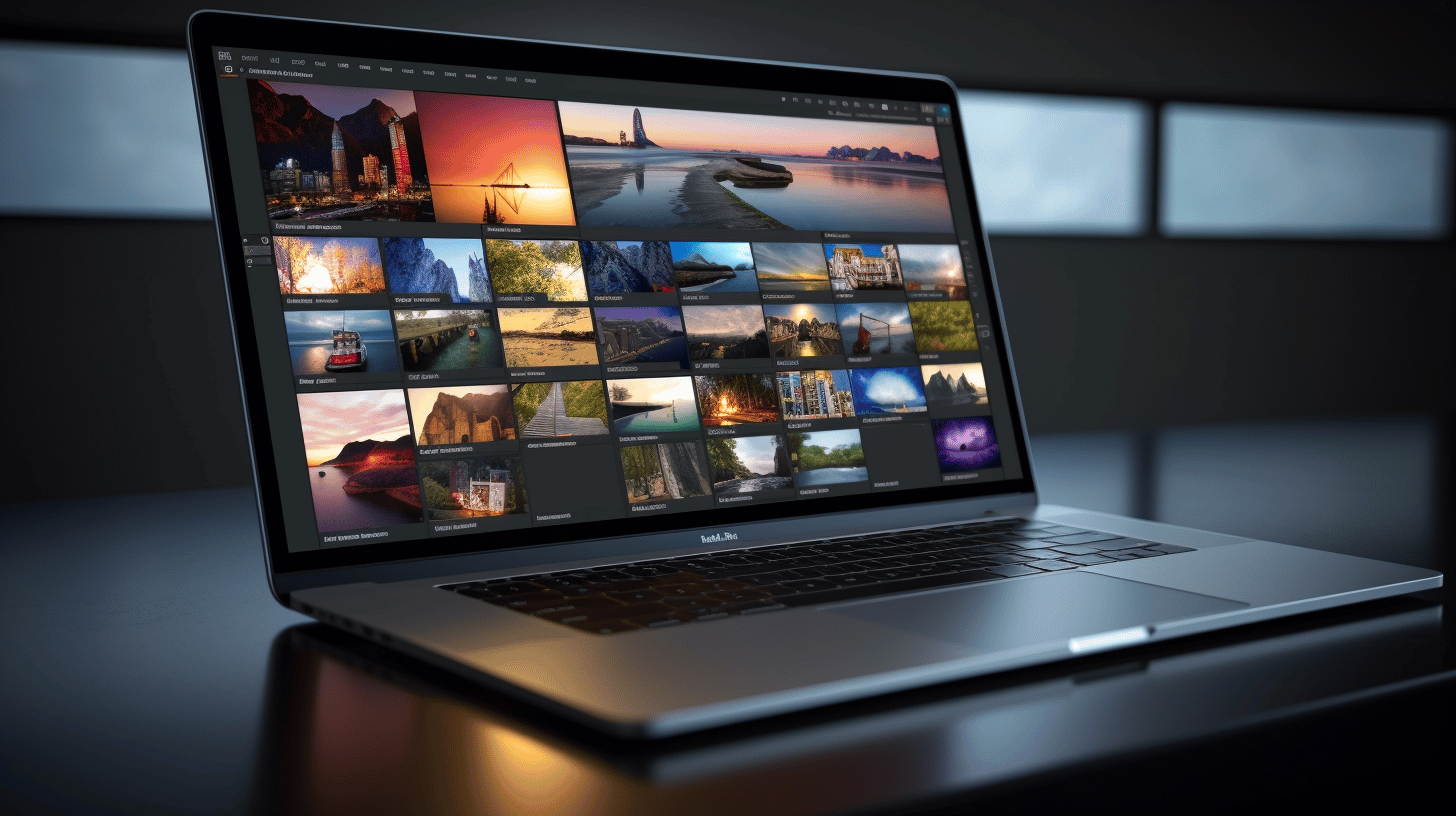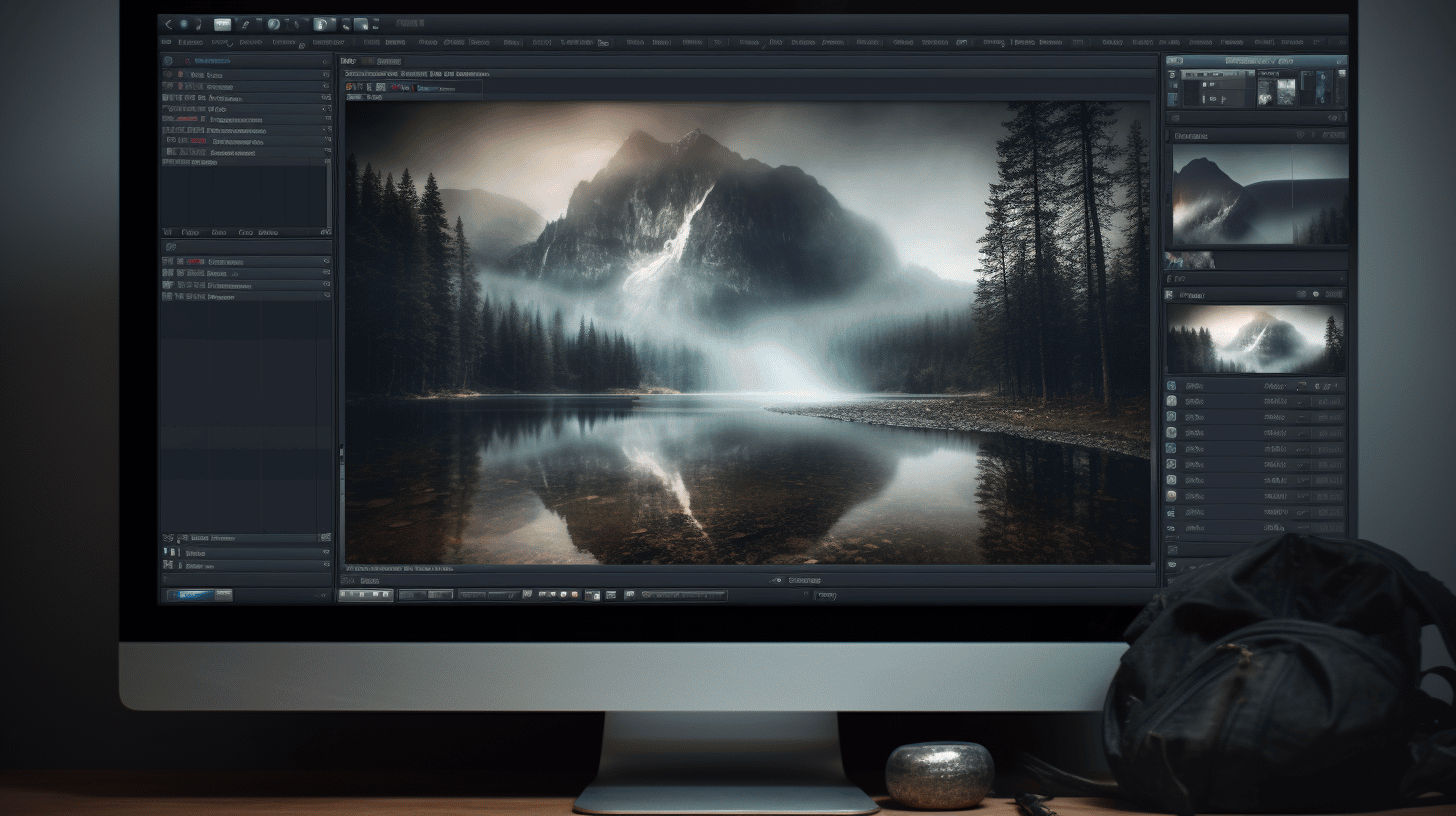Welcome to the world of portrait photography, where the art of capturing the beauty and essence of human subjects comes to life. In recent years, we’ve witnessed a revolutionary transformation in the field of photography, thanks to the power of Artificial Intelligence (AI). With AI technology, photographers now have access to tools and techniques that push the boundaries of creativity, enabling them to enhance their subjects and create stunning portraits like never before.
Gone are the days when photographers relied solely on their skills and editing techniques to bring out the best in their subjects. AI has truly revolutionized the way portrait photography is approached, providing photographers with a wide range of tools and capabilities that were once unimaginable. From automating time-consuming tasks to improving image quality and retouching, AI has become an indispensable tool in the hands of modern photographers.
In this article, we will explore the growth of AI in photography, the impact it has had on portrait photography, and the concerns and benefits of using AI for portrait photographers. We will also delve into the exciting world of AI-powered digital portrait generation, showcasing the advancements in technology that have made it possible to create stunning, lifelike portraits with just a few clicks.
So grab your camera, get ready to explore the possibilities, and join us on this journey into the fascinating realm where AI meets portrait photography.
The Growth of AI in Photography
In recent years, the field of photography has witnessed a remarkable transformation with the integration of Artificial Intelligence (AI) technology. From image recognition to computational photography, AI has rapidly changed the way we capture, edit, and enhance photographs. This revolutionary technology has not only made photography more accessible and convenient but has also unlocked a world of creative possibilities for both amateur and professional photographers.
AI Image Recognition Market
One area where AI has made significant strides is in image recognition. The AI Image Recognition Market is expected to reach USD 10.91 billion by 2028, growing at a CAGR of 19.94%[1]. With AI algorithms that can analyze and understand the content of images, photographers can now easily search for specific objects, scenes, or even emotions in their vast collections of photographs. This technology has streamlined the process of organizing and categorizing images, making it easier to find and retrieve specific photos.
Computational Photography Market
Another exciting application of AI in photography is computational photography. This emerging field combines traditional photography techniques with advanced AI algorithms to produce stunning images. The computational photography market is projected to reach USD 29.0 billion by 2024, with a CAGR of 22.0%[2]. By leveraging AI, photographers can now capture images with improved dynamic range, reduced noise, and enhanced details. Additionally, AI-powered features like portrait mode and night mode have revolutionized smartphone photography, allowing users to capture professional-looking photos with just a few taps.
Global AI Camera Market
The integration of AI technology into cameras is driving the growth of the global AI camera market. Valued at USD 7.52 billion in 2021, this market is projected to grow to USD 50.86 billion by 2029[3]. AI-powered cameras have become increasingly popular, offering features like object recognition, scene optimization, and automatic adjustments for optimal image quality. Whether it’s a smartphone camera or a professional DSLR, AI is transforming the way we capture images, providing users with an unprecedented level of convenience and creative control.
In conclusion, the growth of AI in photography has revolutionized the industry, offering photographers new tools and capabilities that were previously unimaginable. From image recognition to computational photography, AI technology is enhancing the quality of photographs and making photography more accessible than ever. As the AI Image Recognition Market, computational photography market, and global AI camera market continue to expand, we can expect even more exciting innovations in the world of photography.
[1] Link: AI Image Recognition Market
[2] Link: Computational Photography Market
[3] Link: Global AI Camera Market
Impact of AI in Portrait Photography
In recent years, artificial intelligence (AI) has made remarkable strides in various industries, and one area where its impact is particularly felt is in the field of portrait photography. AI has revolutionized the way photographers work, making it easier to create stunning and professional-looking portraits. Let’s delve into the specific ways AI has disrupted the stock photo industry, how it has been integrated into photography workflows, and the exciting advancements happening in AI photography.
Disruption in the Stock Photo Industry
AI-generated images are becoming increasingly prevalent, causing a significant disruption in the stock photo industry. Traditionally, photographers would go through the painstaking process of capturing, editing, and categorizing thousands of photos to meet the demands of stock photography platforms. However, with the rise of AI technology, photographers now have access to AI-powered tools that can generate high-quality, realistic images with astounding speed and accuracy.
This disruption brings several advantages for photographers:
- Increased Efficiency: AI algorithms can generate thousands of images within seconds, saving photographers valuable time and effort.
- Lower Costs: With AI-generated images, photographers can reduce expenses associated with model fees, location rentals, and other production costs.
- Expanded Creativity: AI-powered tools open up new creative possibilities, allowing photographers to experiment with different styles, concepts, and visual effects.
Integration of AI in Workflows
Approximately 50% of photographers have integrated AI into their workflows, reaping the benefits of this revolutionary technology. By leveraging AI tools and software, photographers can streamline their entire creative process, from image curation to post-processing. AI has become an indispensable assistant for photographers, enhancing both the speed and quality of their work.
Here are some ways AI is integrated into photography workflows:
- Image Sorting and Tagging: AI algorithms can analyze and categorize images based on various factors such as composition, subject, and lighting, making it easier for photographers to organize and locate specific images.
- Facial Recognition and Retouching: AI can identify faces in photographs and perform automatic retouching, saving photographers time spent on manual editing.
- Color Enhancement: AI algorithms can analyze and enhance the colors in an image, improving the overall aesthetic appeal.
- Image Upscaling: AI-powered upscaling techniques allow photographers to enlarge low-resolution images without compromising on quality.
Advancements in AI Photography
The advancements in AI photography are truly remarkable and continue to push the boundaries of what is possible in portrait photography. AI-powered tools are constantly evolving, offering photographers exciting features that were once unimaginable. Some notable advancements include:
- Image Restoration: AI algorithms can restore old or damaged photographs, automatically removing scratches, stains, and other imperfections, bringing new life to cherished memories.
- Old Photograph Enhancement: AI can enhance old black and white photographs, adding color and improving the overall quality, making them appear as if they were taken in the present.
- AI-powered Digital Portrait Generator: Photorealistic digital portraits can be created from scratch using AI algorithms. These AI-generated portraits possess incredible detail and can be customized to match various styles and preferences.
In conclusion, AI has significantly impacted the world of portrait photography. From disrupting the stock photo industry to integrating AI into photography workflows and witnessing advancements in AI photography, photographers now have access to powerful tools that enhance their creativity and efficiency. As AI technology continues to evolve, we can expect even more exciting developments in the future, propelling the world of portrait photography into new realms of possibility.
Concerns and Benefits of AI for Portrait Photographers
As technology continues to evolve, artificial intelligence (AI) is making its way into various industries, including photography. For portrait photographers, the integration of AI brings both concerns and significant benefits.
Replacing Human Photo Editors
One concern surrounding AI in portrait photography is the potential to replace the role of human photo editors. With the advancements in AI algorithms, there is a fear that the expertise and creativity of human editors might become obsolete. However, it’s essential to approach this concern with a balanced perspective. While AI can automate certain editing tasks, it cannot replicate the unique artistic vision and subjective decision-making that human editors bring to the table. The human touch in photo editing is crucial for capturing the emotion and essence of a portrait.
Advancements in Portrait Retouching
AI algorithms have made significant advancements in portrait retouching, providing a range of tools and capabilities that can enhance the quality of portraits. These algorithms can automatically detect facial features, adjust skin tones, and even remove blemishes or imperfections. This has the potential to save photographers a significant amount of time in post-processing, allowing them to focus more on other aspects of their craft. However, it is worth noting that the final artistic decisions still fall under the photographer’s control, as AI tools serve as aids rather than replacements for their expertise.
Improved Image Quality and Automation
One of the most substantial benefits of AI for portrait photographers is the potential for improved image quality. AI algorithms can analyze multiple images and learn from them, allowing them to enhance details, sharpen images, and even assist with color grading. This leads to higher-quality portraits, capturing even the finest nuances and details.
Additionally, AI can automate repetitive tasks, such as organizing and categorizing images or applying pre-defined presets. Automating these tasks frees up photographers’ time and energy, enabling them to focus more on the creative aspects of their work.
In conclusion, AI presents both concerns and benefits for portrait photographers. While there may be apprehensions about the potential replacement of human photo editors, it’s important to recognize the irreplaceable value of human expertise in artistic decision-making. Advancements in portrait retouching and improved image quality, however, offer tangible benefits to photographers. By embracing AI as a tool, portrait photographers can leverage its capabilities to streamline their workflow and enhance their creative output.
AI and Digital Portrait Generation
Digital portrait generation has come a long way with the advancements in artificial intelligence (AI) technology. AI-powered tools are now capable of creating stunning digital portraits that are almost indistinguishable from actual human photographs. In this section, we will explore two exciting aspects of AI and digital portrait generation: the AI-Powered Digital Portrait Generator and the advancements in large-scale portrait photos.
AI-Powered Digital Portrait Generator
One fascinating example of AI and digital portrait generation is the AI-Powered Digital Portrait Generator. This innovative mobile app allows users to generate realistic digital portraits effortlessly. With just a few taps, users can transform their photos into stunning digital portraits, thanks to the power of AI algorithms.
The AI-Powered Digital Portrait Generator utilizes deep learning techniques to analyze facial features, expressions, and other nuances present in a photograph. It then applies this knowledge to recreate the image with remarkable accuracy. The generated digital portraits exhibit incredible attention to detail, capturing the individual’s unique characteristics in a lifelike manner.
Not only does the AI-Powered Digital Portrait Generator offer users a fun and creative way to transform their photos, but it also serves as an excellent tool for artists and designers. They can use it to generate references for their artwork or to experiment with different styles and techniques. This app truly showcases the potential of AI in enhancing digital artistry.
Advancements in Large-Scale Portrait Photos
In addition to the AI-Powered Digital Portrait Generator, AI technology has also made significant advancements in large-scale portrait photos. Traditionally, capturing detailed and high-resolution photos of large groups of people posed significant challenges. However, with the integration of AI algorithms, this process has become much more efficient.
AI algorithms can now analyze and process large data sets of portrait photos, enabling the creation of composite images that seamlessly merge individual portraits into a cohesive whole. This opens up new possibilities in various fields, including event photography, group portraits, and even archival restoration projects.
By leveraging AI, photographers and researchers can now generate large-scale portrait photos with remarkable clarity and detail. They can meticulously align and combine separate images, eliminating blurriness or inconsistencies that may have occurred in the original shots. The result is a stunning composite photo that captures the essence of the entire group or scene.
The advancements in large-scale portrait photos driven by AI technology have revolutionized how we capture, preserve, and appreciate group memories. Whether it’s capturing a family reunion, a graduation ceremony, or a historical moment, AI-powered large-scale portrait photos ensure that every individual’s presence is beautifully captured and immortalized.
In conclusion, AI technology has profoundly impacted digital portrait generation, offering us new ways to create and appreciate stunning digital portraits. From the AI-Powered Digital Portrait Generator to advancements in large-scale portrait photos, AI has revolutionized the art of capturing and representing the human face.
Conclusion
In conclusion, the power of AI in portrait photography cannot be denied. With advancements in AI technology, photographers now have access to tools and techniques that can enhance the beauty of their subjects in ways never before possible. From automated image recognition to computational photography, AI has opened up new possibilities for photographers to create stunning and professional-looking portraits.
However, it’s important to acknowledge the concerns associated with AI in the field of portrait photography. While AI can automate certain tasks and improve image quality, there are concerns about the role of human photo editors and the potential for AI to replace them completely. Additionally, the integration of AI in workflows requires careful consideration to maintain a balance between automation and creative input.
Despite these concerns, the benefits of AI in portrait photography are significant. AI-powered tools for retouching and image enhancement can save photographers time and effort, allowing them to focus on the creative aspects of their work. Moreover, the ability to generate digital portraits using AI opens up exciting possibilities for artistic expression and experimentation.
If you’re interested in exploring the world of photography further, be sure to visit Wim Arys Photography. Run by Wim Arys, a talented portrait and landscape photographer, this website offers a wealth of tutorials, tips, and camera reviews, with a special focus on Sony mirrorless cameras. Whether you’re a beginner or an experienced photographer, you’ll find inspiration and valuable resources to enhance your photography projects. Check out Wim Arys Photography at wimarys.com.
Remember, technology is a tool that can enhance our creative endeavors, but it’s the photographer’s artistic vision and skill that truly bring portraits to life. Embrace the power of AI while staying true to your unique style and perspective. Happy shooting!
Frequently Asked Questions
- How does AI enhance portrait photography?
AI enhances portrait photography by automatically detecting and enhancing facial features, smoothing skin imperfections, adjusting lighting and colors, and applying artistic filters to create stunning and professional-looking portraits.
- What are some popular AI-powered portrait photography tools?
Some popular AI-powered portrait photography tools include Adobe Photoshop with AI enhancements, PortraitPro, Luminar AI, and Perfectly Clear. These tools use AI algorithms to automate and enhance various aspects of portrait editing.
- Does AI in portrait photography replace the need for professional photographers?
No, AI in portrait photography does not replace the need for professional photographers. It is a tool that can assist photographers in enhancing their work, but the artistic vision, composition, and connection with the subject still require the expertise of a skilled photographer.
- Can AI improve the appearance of subjects in portrait photography?
Yes, AI can improve the appearance of subjects in portrait photography by automatically smoothening skin, removing blemishes, brightening eyes, whitening teeth, and even adding a subtle glow. However, it’s important to use AI tools with caution and maintain a natural-looking result.
- Are there any privacy concerns related to AI in portrait photography?
There can be privacy concerns related to AI in portrait photography, especially when it comes to facial recognition and manipulation. It’s important for photographers and AI tool developers to respect privacy laws and obtain proper consent from subjects before using their photos for AI-enhancement purposes.




0 Comments